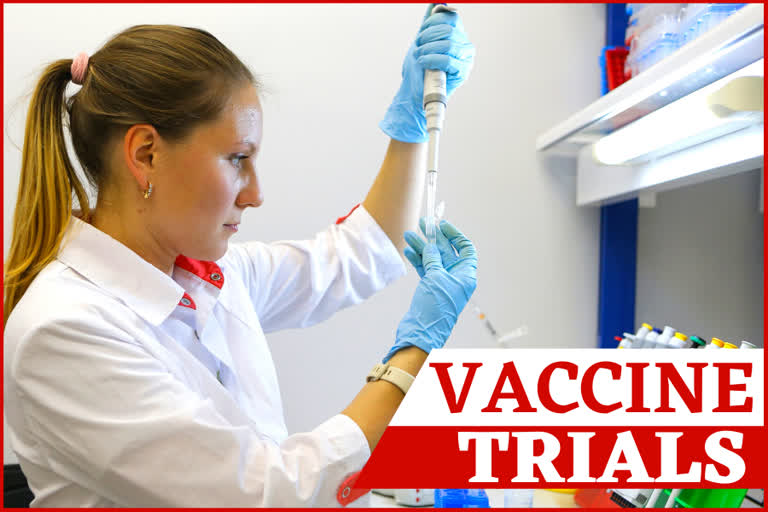London: The UK government on Monday issued an appeal for more people from an ethnic minority background, including those of Indian-origin, to sign up for ongoing clinical trials for a potential vaccine to combat COVID-19.
A targeted recruitment programme broadcast in Gujarati, Punjabi, Bengali and Urdu is among the measures being deployed to reach out to different communities.
Over 1,00,000 people have volunteered to take part in vaccine trials across Britain as part of efforts to speed up the discovery of a safe and effective vaccine that protects against the deadly coronavirus.
However, the uptake among certain sections of the population has been low, leading to a call-out for more ethnic minorities, over-65s and frontline health and social care workers to join the National Health Service COVID-19 Vaccine Research Registry to help ensure the potential vaccine candidates work for everyone.
Scientists and researchers are working day and night to find a vaccine that meets the UK's rigorous regulatory and safety standards, but they need hundreds of thousands of people of all backgrounds and ages to sign-up for studies to speed up this vital research, said UK Business Secretary Alok Sharma.
I urge everyone to play our part in the fight against coronavirus and join the 1,00,000 people who have already registered, so we can help save and protect millions of lives, said the Indian-origin Cabinet minister.
Read | China grants first patent to its COVID-19 vaccine
According to the NHS, clinical studies with a diverse pool of volunteers will help scientists and researchers better understand the effectiveness of each vaccine candidate and will considerably speed up efforts to discover a safe and workable vaccine.
Getting 1,00,000 volunteers on board is a great start but we need many more people from many different backgrounds that we can call on for future studies if we are to find a vaccine quickly to protect those who need it against coronavirus, said Kate Bingham, chair of the UK government's Vaccines Taskforce.
"Protecting those at risk is the only way we will end this pandemic. That's why we are working as quickly as possible to run clinical studies on the most promising vaccines to see whether they offer protection against COVID-19, whilst adhering to the UK's strict safety and regulatory processes. And we need people throughout the UK to sign up to the registry to help us achieve this, she said.
Read | Bahrain woman throws Ganesha idols on floor
Launched last month, the NHS COVID-19 Vaccine Research Registry is an online service allowing members of the public to register their interest in COVID-19 vaccine studies and be contacted to participate in future clinical trials.
Several trials are expected to begin in the coming months, working with the NHS, research institutions and businesses, helping to develop and manufacture the vaccines.
Dinesh Saralaya, an Indian-origin Consultant Respiratory Physician and Director of the UK's National Institute for Health Research (NIHR) Patient Recruitment Centre (PRC), sought to reassure people that research trials and studies are strictly regulated for ethics and safety.
"They are conducted within the framework of the NIHR, which is the research partner of the NHS and we take every precaution to safeguard participants taking part. This includes appointments in settings like sports halls close to where people live and work rather than in hospitals," said Saralaya.
"The best way to protect us from future outbreaks is to develop effective vaccines. Several vaccine trials are being conducted around the UK in the coming months and it is important that we all sign up to be contacted about them," he said.
The more people who volunteer to take part the more likely we find an answer to whether any vaccine is effective we must have people from different backgrounds and ages as volunteers, so that the vaccines that are developed work for everyone, added Professor Chris Whitty, the Chief Medical Officer for England.
Vaccines are tested in stages to ensure they are safe and effective. The UK's Department for Business, Energy and Industrial Strategy (BEIS) said that volunteers who are contacted to take part in trials will be given information about what stage a particular vaccine is at and details of how it has already been tested.
They will be able to consider this when deciding to take part and people can withdraw from the registry at any point.
The UK has so far secured access to around 340-million doses of six different candidates across four coronavirus vaccine types, including the University of Oxford's vaccine being developed with AstraZeneca, as well as agreements with the BioNTech/Pfizer alliance, Valneva and GSK/Sanofi Pasteur.
(PTI)



